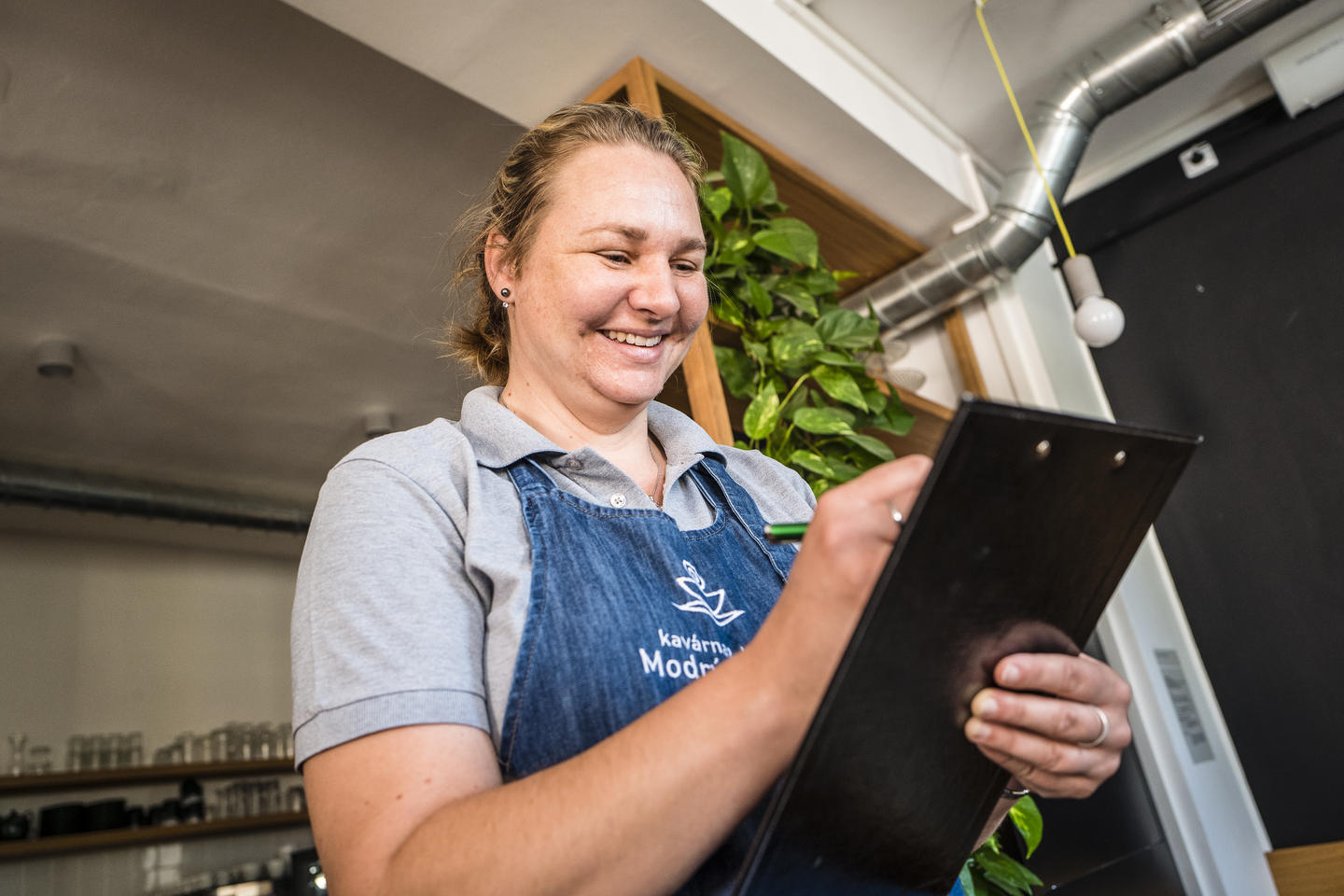In the Czech Republic, as in other countries, it may be difficult for people with mental health diseases to find and keep a job. Moreover, stigmatisation remains a challenge.
“There are still some parts of society thinking that people suffering from mental health diseases should stay mainly in the psychiatric hospitals and have institutional care,” says Petr Čermák from the Czech Ministry of Health.
Improving the care services for this group and reducing the negative perceptions and stigma of people with mental health diseases was one of the focus areas of the €19.2 million health programme in the Czech Republic in the previous funding period.
Working among people
It is a busy day in the café Blue House on the main square of the small town Řevnice, a 30 minute drive outside of Prague. Guests, old and young, are enjoying the good weather and delicious cakes. On the second floor, Jana Šebková is preparing coffee. She works concentrated, but with a smile on her face. It was not always like that. When Jana got sick with a mental illness, she could no longer continue her job in a kindergarten. She looked for and tried other jobs, but found the work too stressful and she could not continue. When she was offered a job at the café Blue House two years ago, it all got better. She could work part time and have more time for her family, while still earning her own money.
“I am very happy here. I enjoy my job and to work with people,” Jana says.
Creating jobs and opportunities
The Norway Grants project ‘Extension of community services for people with mental health diseases in Blue House in Řevnice’ made it possible to extend the popular town café Blue House, which is also a sheltered workplace for around 20 people with mental disease.
“The purpose of this place is to provide social services for mentally ill people and give them a place to work. It can be hard for this group to get jobs in the regular employment market”, explains Marcela Součková, financial manager of the Civic association Náruč, who implemented the project.
With the funding, a new floor and additional kitchen was built, meaning more cakes and coffee to be served to more people.
“The extension made it possible for us to create three additional positions and it also increased our revenue”, says Součková proud. One of the three positions went to Jana.
Improving social inclusion and fighting stigma
As the mentally ill are serving the local people, the café is also contributing to improving the social integration of this group. The café also hosts lectures on mental health for schools, teachers, parents and the general public.
“This and other projects have contributed to a reduction of the prejudice towards mentally ill people, not only among the general public, but also among physicians and medical staff”, says Čermák.
Improving mental health services and reducing health inequalities was one of the priority areas of support for the donors in the Czech Republic in the EEA and Norway Grants 2009-2014 funding period.
Read about other projects and programmes in the Czech Republic at www.eeagrants.org/czech-republic
